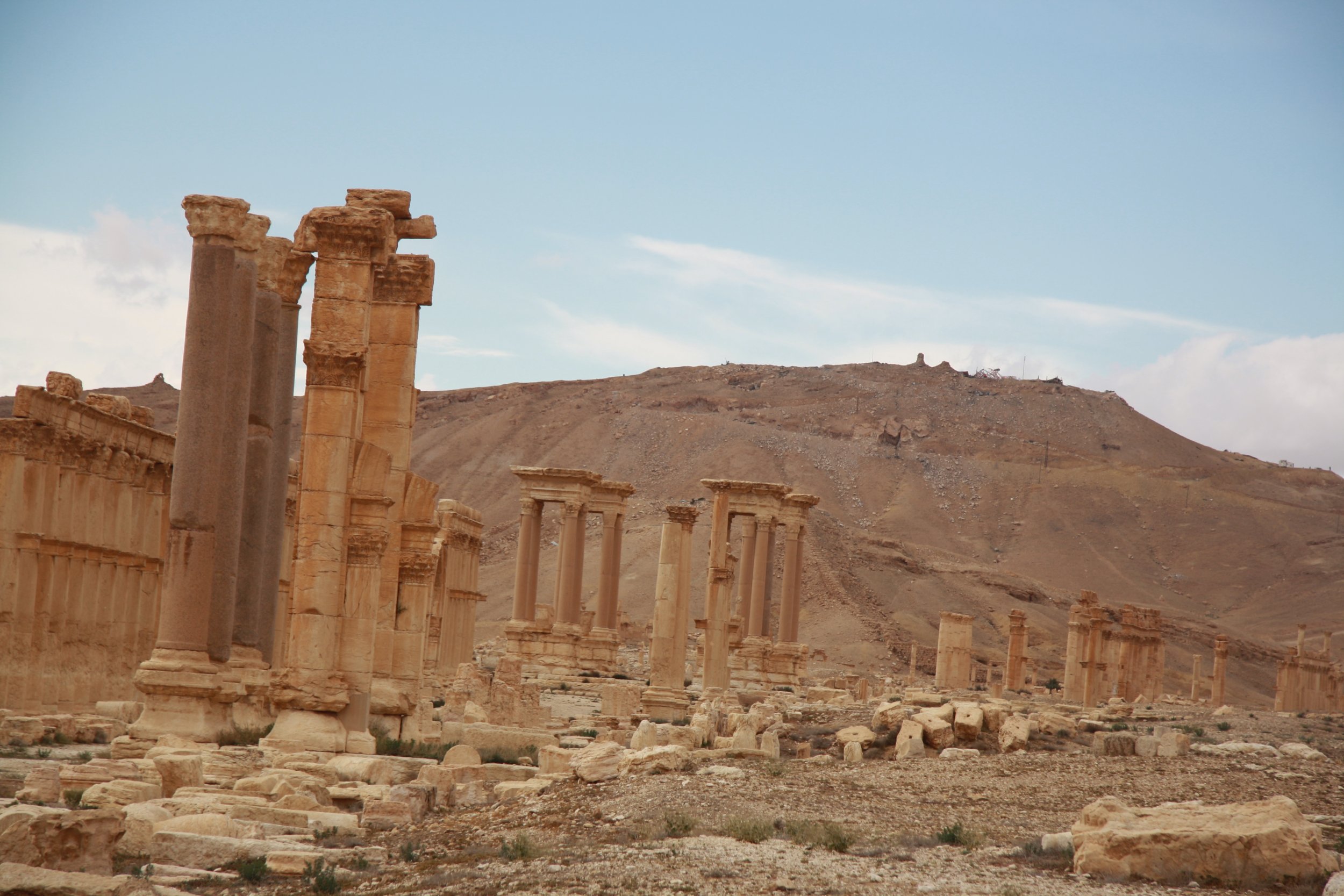
New images of Palmyra released to Newsweek by the Directorate of Syrian Antiquities on Tuesday show the Islamic State militant group's (ISIS) destruction in the ancient Syrian city but also reveal how some of its most important archaeological structures remain untouched.
The Syrian army, backed by Russian air strikes, liberated the city from ISIS on Saturday, driving the radical Islamist group out after days of intense clashes. Since taking control of the city in May 2015, ISIS destroyed several of Palmyra's famous Roman structures using explosives, such as the Temple of Bel, the Baalshamin Temple and the Arch of Triumph.
Yet images taken during a field visit by the Directorate of Syrian Antiquities on Monday, and passed to Newsweek by the Syrian Director of Antiquities Maamoun Abdelkarim, show that the outer walls of the Temple of Bel remain in good condition, as does the city's Great Colonnade, the main avenue that ran through the "pearl of the desert."

The images do, however, show the destruction at the museum in the city, with some of the statues peeled off of the walls and thrown to the floor. Some of the statues had their faces smashed and some had been beheaded, the antiquities body said. They also show the destruction of the inner chamber of the Temple of Bel. But Abdelkarim says that the outlook for Palmyra is now "beautiful" as Syrian authorities look towards the reconstruction of the UNESCO-listed heritage site.
"I am very happy. I remember crying two times in my life with joy," he says. "One, when I became a father I remember with joy I cried. Second, when I saw the images coming from Palmyra, [upon realizing] that it is not destroyed completely, I cried with joy."
He said that the liberation of the ancient city was not just for the Syrian people but for the entire world and called for the international community to help with the city's reconstruction, which he estimated could take as little as five years. "We welcome all the help, from all of the countries in the world," he adds.
Abdelkarim and his antiquities must wait for authorization from the Syrian army to enter Palmyra and carry out damage assessments because of the presence of mines in the city, he says. He intends to visit and inspect all of the monuments there before providing figures on how much of the city has been damaged.


Archaeologists have hailed the liberation of the city and some have even suggested leaving some of the monuments in their damaged state as a reminder of what can go wrong if sites are not protected.
"There may be some things where you leave them as a demonstration of what can happen, and therefore they become new monuments in their own right," says Dr. Robert Bewley, investigator at Oxford University's Endangered Archaeology of the Middle East and North Africa project. "It could be that a tower tomb might be one example where you say 'we are going to leave this to show what happens when things go wrong, as a reminder.'"
Archaeologists are excited at the prospect of returning to the ancient site and it being opened up to the world again. But it is a reconstruction project that will reach into the "millions," says Bewley. And if the forces opposed to ISIS manage to get access to ISIS' cash-heavy bank accounts, he says in reference to the reconstruction, "that would be a very good use of their money, wouldn't it?"
Uncommon Knowledge
Newsweek is committed to challenging conventional wisdom and finding connections in the search for common ground.
Newsweek is committed to challenging conventional wisdom and finding connections in the search for common ground.
About the writer
Jack is International Security and Terrorism Correspondent for Newsweek.
Email: j.moore@newsweek.com
Encrypted email: jfxm@protonmail.com
Available on Whatsapp, Signal, Wickr, Telegram, Viber.
Twitter: @JFXM
Instagram: Read more





